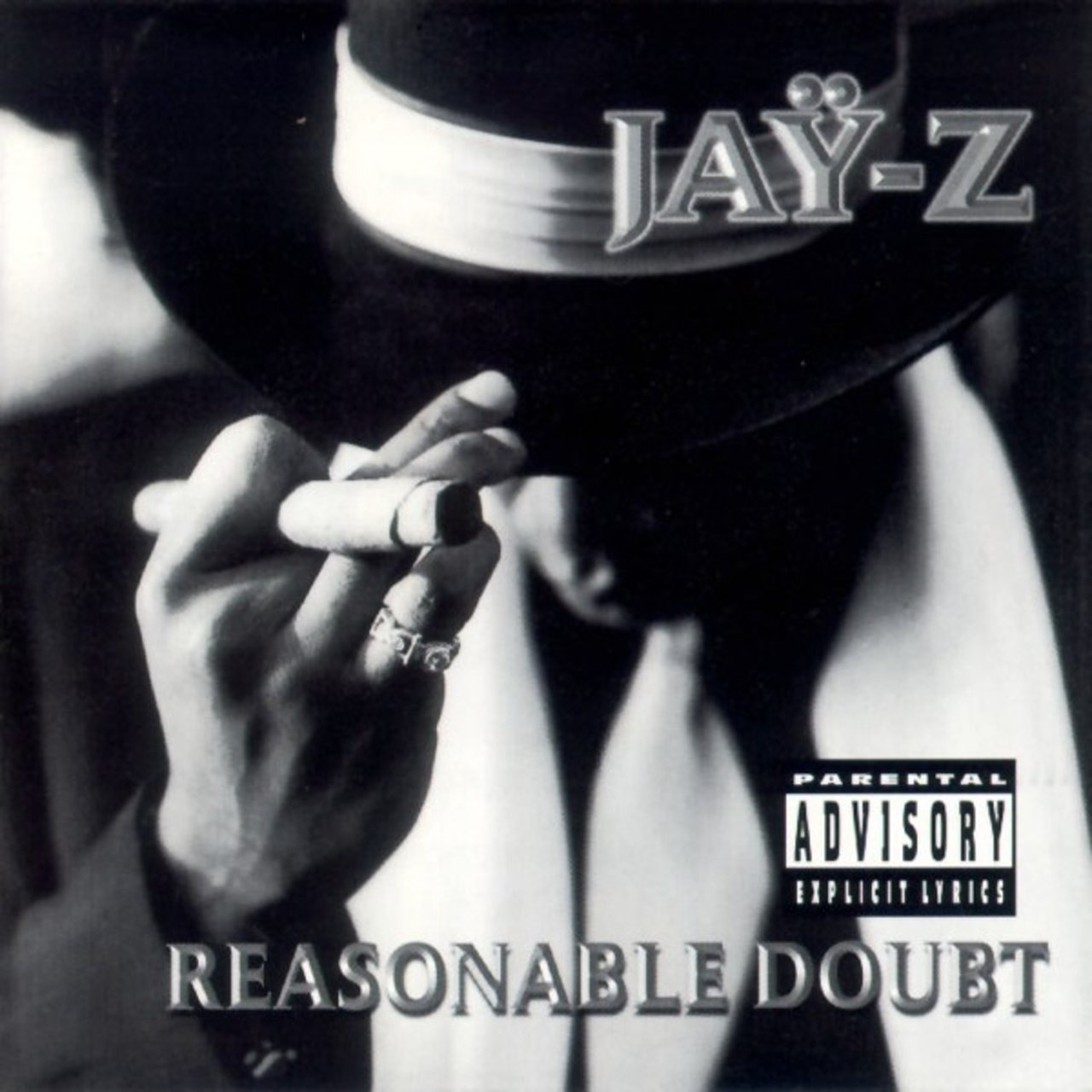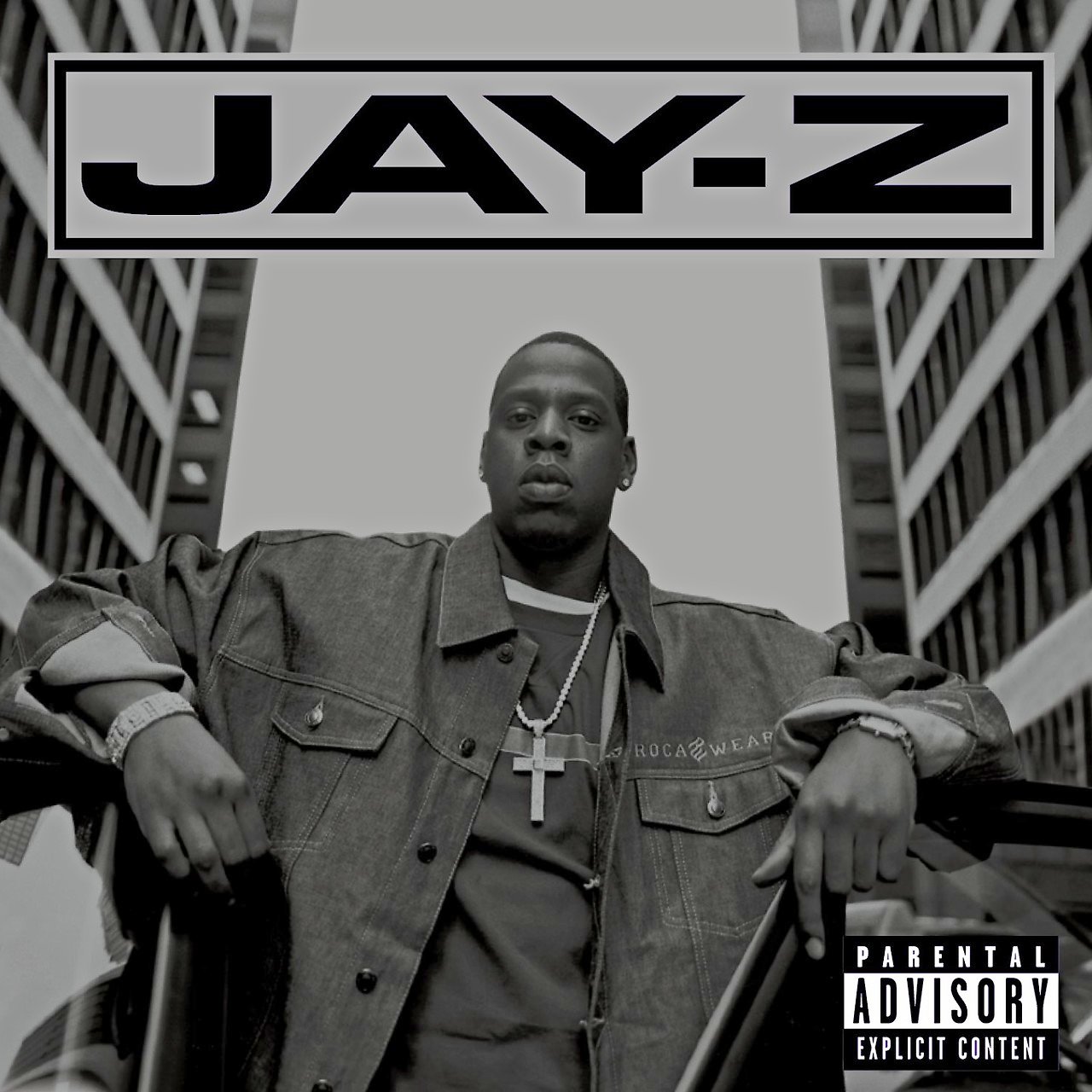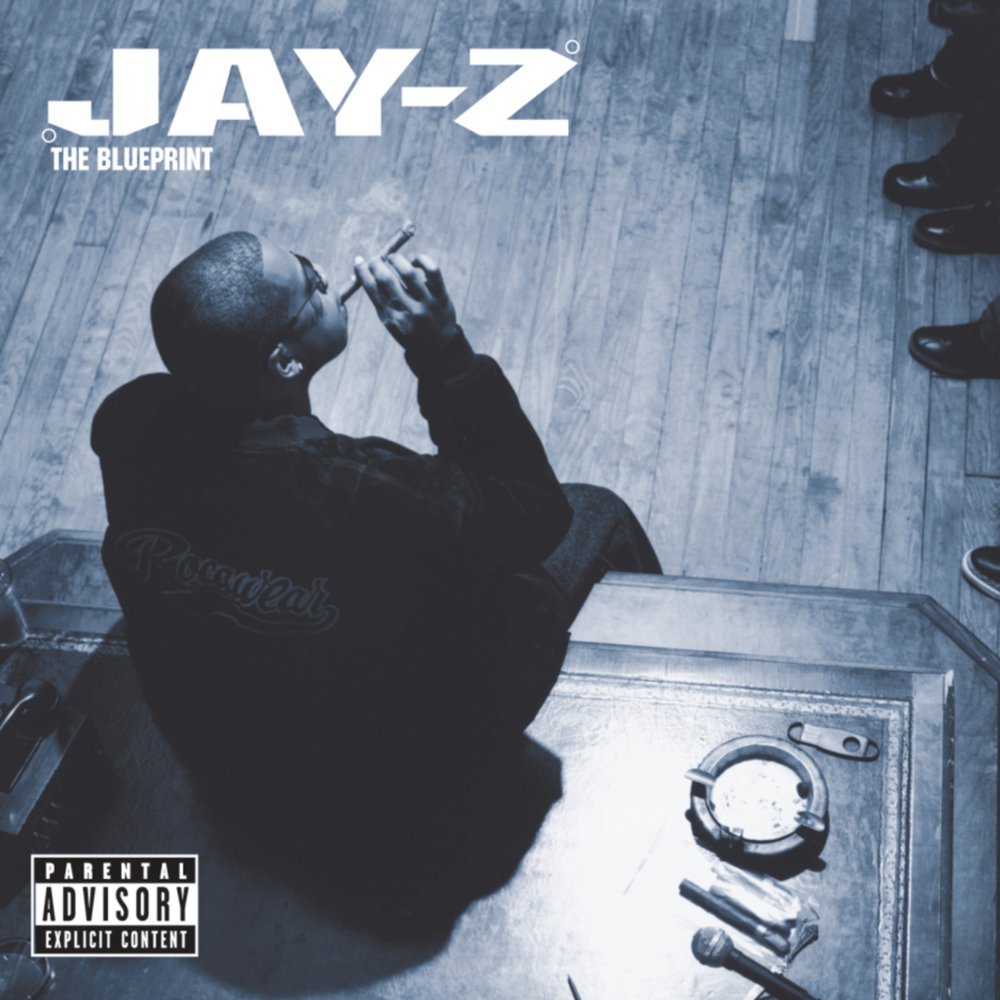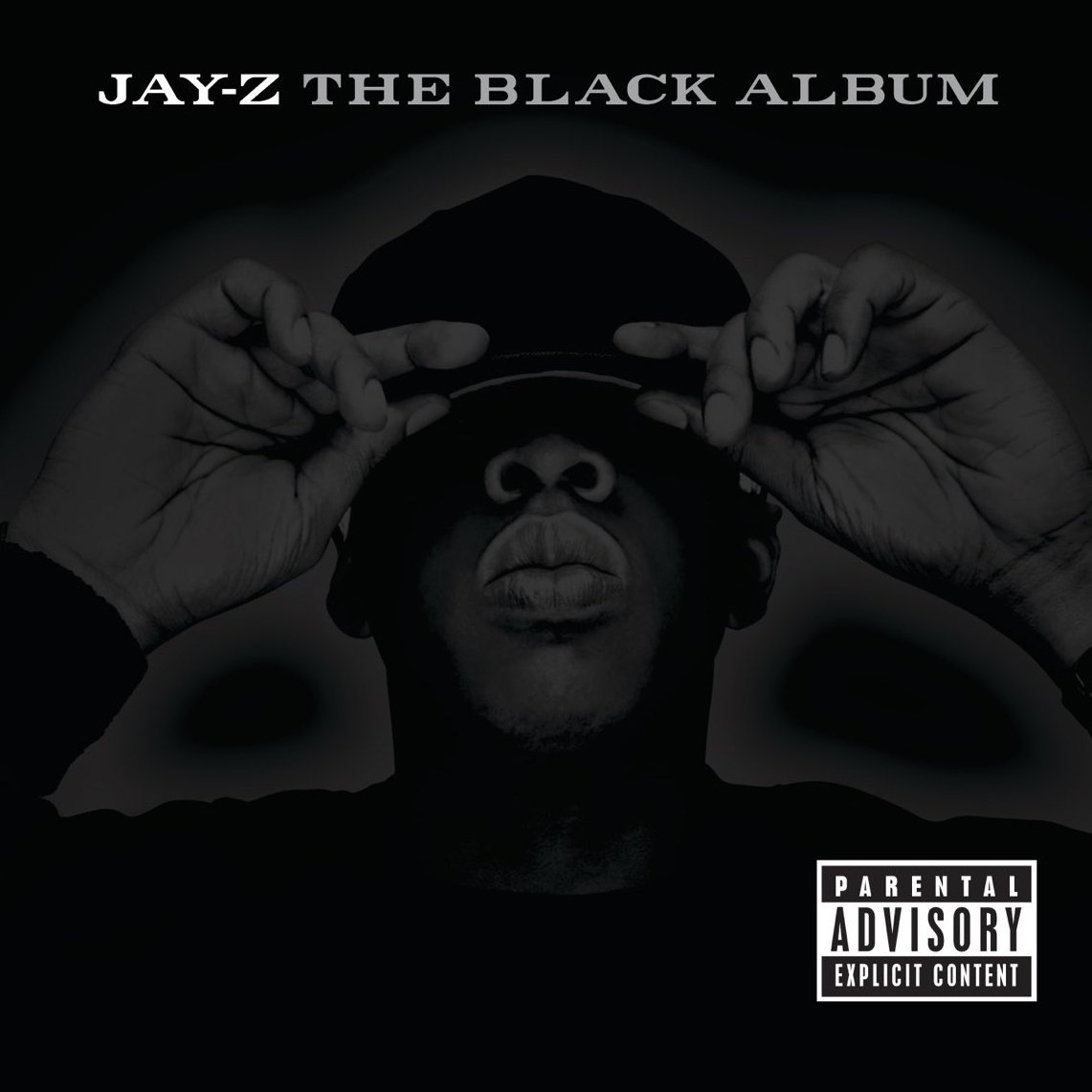Happy 15th Anniversary to Jay-Z’s tenth studio album American Gangster, originally released November 6, 2007.
As an Amazon affiliate partner, Albumism earns commissions from qualifying purchases.
It’s not difficult to see how Shawn “Jay-Z” Carter would see parallels between himself and Frank Lucas, the “self-made” kingpin who ruled atop the United States’ drug empire during the 1970s as depicted in the film American Gangster. Jigga came up under O.G.s like Big Daddy Kane and Jaz, only to see them get jerked by the industry. Along with Dame Dash and Kareem “Biggs” Burke, he built his own empire in the form of Roc-A-Fella Records, and achieved so much success that he in effect ended up “ruling” rap music. However, unlike Lucas, Jay-Z did manage “to quit while he was ahead,” enjoy his brief “retirement,” and served as President of Def Jam Records, the label that agreed to distribute Roc-A-Fella and helped launch his career into the stratosphere. But before long, he returned to his recording career to reassert his dominance.
Jay-Z officially returned from his self-imposed hiatus with Kingdom Come (2006), his first attempt to spend the majority of an album tackling “mature” subjects. He talked about his personal growth as he lived and worked through his thirties, the issues he faced as a rich Black man in the United States, beefs he had with various rappers, and social issues facing Black people throughout the country.
Though Kingdom Come initially sold well and was generally well-received, the album ranks in the lower half of his discography. Most of the singles still hold up, and other tracks feature Jay rhyming with renewed hunger. However, Kingdom Come also features some of the worst songs in his entire catalogue (see “Anything” with Usher and “Hollywood” with Beyoncé). He quickly bounced back, released his tenth solo album American Gangster less than a year later. A decade-and-a-half after its release, it’s still the best “post-retirement” album by Jay-Z, and probably in the top three or four albums that he’s ever recorded.
This was also Jay-Z’s attempt to re-assert himself as one of the top artists in hip-hop. Just a couple of months before his “little brother” Kanye West released Graduation on Def Jam, and was basking in the glow of its massive success. Fortunately, Jay-Z didn’t try to emulate Kanye’s sound, opting to return to his roots, spinning vivid tracks about dealing drugs over soulful loops. Except this time, he focused it through the prism of the American Gangster film.
Jay-Z told the New York Times that he was inspired to create this album upon catching an early screening of the Ridley Scott directed American Gangster, saying the film resonated with him. He then put together the album over the next few weeks, gathering beats for the projects and writing songs, each one reportedly based on a scene from the film. Lyrically, Jay-Z waxes philosophic on the themes from the film, at times relating his own personal experiences to what Lucas was going through at different points of the film.
The album’s production was handled by a variety of beatsmiths, some of Jay-Z’s past collaborators, and some new to working with the artist. The roster includes Puff Daddy’s Hitmen, The Neptunes, Just Blaze, No I.D. & Jermaine Dupri, and DJ Toomp, among others. Though clocking in at 16 tracks, the final two songs on the album are bonus cuts, in the sense that Jay-Z saw them existing outside of American Gangster’s overall narrative.
Watch the Official Videos (Playlist):
Jay very much envisioned the album being consumed as one cohesive unit. So much so that he pulled the album from iTunes before it was to be released, arguing that he wanted the album to be enjoyed as a whole, rather than allowing listeners to purchase separate tracks. This was in the days before the ubiquity of streaming services, but still at a point where listeners purchasing music digitally was beginning to dominate the market. So this was considered a risky move by Jay-Z.
Despite this, American Gangster occasionally feels like different two albums, or an album and an EP, to be exact. The production is really what differentiates things. About two-thirds of the songs on the album are built around samples from ’70s soul tracks (or songs that sound like ’70s soul tracks), evocative of the era when the American Gangster film takes place. These are mostly the songs produced by the Hitmen (along with a few others). The other third of the album is evocative of the ’80s, when, as Jay rhymes, “they made me at.” This third is built around R&B records from the ’80s or otherwise inspired by hip-hop tracks from that era. Both entities work well, though they don’t always flow together perfectly.
The structure of American Gangster more or less follows the story of the film. The album begins with soulful tracks like “Pray” and “American Dreamin’,” featuring Jay-Z rapping from the perspective of someone young, in the game, aspiring to reach the top, and then planning on using any means to pursue his dreams to get there. As aspirational rap goes, these tracks are pretty inspiring, even if you know that he’s talking about how to be the best drug dealer that he can be.
Throughout the album, Jay-Z mixes in bits of his own life with pieces of Frank Lucas’ upbringing to create a composite view of himself doing what he needs to do to get to the top of the illegal drug game. On “No Hook,” one of the best songs on the album, Jay-Z explains the hustle and the grim process of slanging dope, with the aim of elevating his family out of poverty as one of his central motivations. As he raps, “Skinny n***a, toothpick, but I do lift / Weight like I’m using ’roids / Rolls-Royce keep my movements, smooth while maneuvering / Through all the manure in the sewer that I grew up in.”
Jay-Z sets up a good juxtaposition of going from songs like the victorious “Sweet” and “Roc Boys” into the reflective “I Know.” The first two songs are celebratory odes to his own triumphs as a drug dealer, as he finds himself on top of the world, possessing everything that he’s dreamed about. He gives joyful shout-outs to those who supported him on the way up, and, most of all “the customers” a.k.a. the addicts using his product.
These two odes to conquest are then contrasted with the Neptunes-produced “I Know,” a seemingly upbeat track where Jay talks about a woman literally unable to live without him. The song is an extended metaphor for drug addiction, as Jay is rapping from the perspective of heroin itself, and the hold that it has over the user. Over sprinkling keys and synths, he details the destructive power of drug addiction, depicting how it ruins the people, families, and communities that it infects.
“Party Life” serves as a brief but mellow interlude, and one of the few tracks where Jay-Z raps just as Jay-Z. Here Jigga spills laid back braggadocio over an equally laid-back sample of the Little Beaver track of the same name, announcing over placid guitar licks that “I sport fly shit, I should win the ESPY” and “Art with no easel, please it’s no equal / Your boy's ‘Off the Wall,’ these other n***as is Tito.” It is probably one of the few JAY-Z songs that you can smoke a joint to.
American Gangster somewhat shifts gears with the incredibly dope “Ignorant Shit.” A version of the Just Blaze-produced track first surfaced in 2004, before the American Gangster movie even started filming. It features Jay-Z and guest rapper Beanie Sigel rapping over a sample of the Isley Brothers’ “Between the Sheets,” most famously used on “Big Poppa” by the venerable Biggie Smalls. The track serves as a middle finger to those who didn’t appreciate Kingdom Come. In the song’s intro, Jay-Z reflects that when he talks about dealing drugs he’s hailed as a genius, but “I make some thought provoking shit y’all question whether he fallin’ off.”
Jay-Z is in fine bragging/”ignorant” form, rapping about “Watching Erik Estrada, bagging up at the Ramada / Table full of powder, A.C. broke / ’Bout to take another shower on my twenty-fifth hour / Spike Lees everywhere, game or the fight / You might see me anywhere, day in the life / Only thing changed the tail number on the flight / I can touch down and take off the same night.” Soon after he proclaims, “I’m so flossy, bitch, get off me / Trick, get off me, you can’t get off me.” The hook is essentially unleashing a stream of curses. But as good as the song is, it somewhat disrupts the flow of the album, especially musically. Furthermore, a tacked on third verse about the backlash rappers received post-Don Imus’ “Nappy Headed Hoes” comments sounds out of place on an album reflecting on a specific time and place in ’70s New York City, making the song sound dated in a completely different sort of way.
Furthermore, the overall thesis of the song, “You don’t appreciate it when I’m thoughtful, so I’m going to be as ignorant as possible,” is ostensibly repeated on “Say Hello,” the very next song on the album. The DJ Toomp-produced song does fit into the overall album a little better, as he celebrates playing the villain role over soaring keys and brass, promising to straighten up and stop cursing “If you tell me our schools gon’ be perfect / When Jena Six don’t exist / Tell him that's when I'll stop saying ‘Bitch.’”
There are other dope songs that still sound a bit out of place. This includes “Blue Magic,” American Gangster’s first single, which ended up becoming one of the album’s bonus cuts. The Neptunes-produced track sounds like something the duo would hook up for Clipse, with its crackling drums and gothic keys. Lyrically, Jay-Z channels Rakim as crack dealer, celebrating his own dope slanging acumen, starting off the track with, “Yeah, so what if you flip a couple words? / I could triple that in birds / Open your mind you see the circus in the sky / I’m Ringling Brothers, Barnum & Bailey with the pies / No matter how you slice it I’m your motherfucking guy / And just like a b-boy with 360 waves / Do the same with the pot, still come back beige.”
Jigga celebrates ’80s hip-hop and culture in spots throughout American Gangster. “Hello Brooklyn 2.0” is an homage/sequel to the Beastie Boys mini-song of the same name, which appeared on their 1989 sophomore album Paul’s Boutique. Over pulsating drums and 808 kicks, Jay-Z pays tribute to the place of his birth. He describes his romance with the borough and celebrates how it helped make him the person that he is today, while shouting out all of its infamous neighborhoods and local landmarks. However, a guest verse and hook by New Orleans’ Lil’ Wayne is really a leftfield inclusion. Granted, Lil’ Wayne was ubiquitous and white hot at the time, but his contribution to the song isn’t that good.
Which isn’t to say that guest appearances necessarily detract from the album. A guest verse from Nas on “Success” is one of the album’s best moments. Jay-Z and Nas had spent the years leading up to the early 2000s embroiled in a beef for reasons that I doubt anyone remembers anymore. The pair patched things up by the mid ’00s, especially after Nas left Columbia Records for Def Jam (though some speculate whether the rivalry was ever based in reality or just done for publicity). Earlier, Jay-Z contributed a verse on “Black Republicans” on Nas’ 2006 album Hip-Hop Is Dead, and Nas then returned the favor on “Success.”
Enjoying this article? Click/tap on the album covers to explore more about Jay-Z:
The track, produced by No I.D. and Jermaine Dupri, examines the realization that even after you’ve achieved your goals and are at the top of the game, it still won’t guarantee peace of mind, because there’ll always be someone gunning for you. It’s a sentiment Jay expressed a decade before on “Streets Is Watching,” but here it still sounds fresh. The Queensbridge legend Nas is in fine form, rapping, “Why is life worth living? / Is it to hunt for the shit that you want? / To receive is great, but I lust giving.” He then declares, “Worst enemies wanna be my best friends / Best friends wanna be enemies like that’s what’s in / But I don’t give a fuck, walk inside the lion’s den / Take everybody's chips, about to cash them in.”
The “story” of the album ends with “Fallin’,” another Jermaine Dupri/No I.D. produced song where Jay-Z reflects on the pitfalls of not knowing when to walk away from the drug game, because inevitably everyone either ends up dead or in jail. He effectively examines the consequences of becoming too caught up in the money and prestige of being a powerful dealer, as he raps, “Got the two bricks; new cars, new whips / But n***as never learn until they end up in the news clip / The irony of selling drugs is sort of like you using it / Guess it's two sides to what substance abuse is.”
The album ends with the Just Blaze produced title track, the second of the two bonus cuts. Though one of the stronger songs on the album, it occupies an odd middle ground. On one hand, it’s inclusion as a bonus track is understandable, as the subject matter falls outside of American Gangster’s overall theme relating to the movie. Jay-Z reflects on his own upbringing, the drug-slanging he did in the ’80s in order to support himself, and his transition to dominance in hip-hop music. In that sense, it’s much like dozens of other songs in Jigga’s catalogue. However, musically, the song fits into the mid-’70s soundscape that Jay-Z favors for most of American Gangster, as Just Blaze expertly chops Curtis Mayfield’s “Short Eyes,” and adds in live drums, horns, and strings. It sounds reminiscent of “Show Me What You Got” from Kingdom Come (also produced by Just Blaze). “American Gangster” ends the album on a strong note, as Jay-Z “bid[s] you Freddy Adu / Prodigal Child, y'all not ready for the future.”
Though the future of Jay-Z’s music from a sales perspective remained bright, his output on the artistic end was lacking in the decade-and-a-half that followed. American Gangster was the last really cohesive Jay-Z album for quite a while. His output became increasingly sporadic and varied in quality during the better part of a decade, as albums like Blueprint 3 (2009), Magna Carta Holy Grail (2013), and even Watch the Throne (his 2011 collaborative album with Kanye), were not particularly consistent and featured wide swings in quality. It wasn’t until the release of 4:44 in 2017, which largely concerns his relationship with his wife Beyoncé (or possibly a fictionalized version of it), that Jay-Z seemed to recapture his focus again.
American Gangster hits its marks because of a similar focus and because it takes a theme and takes it seriously. Yes, comparing the rap game to the drug game is something that Jigga had been doing since he got serious about his solo career, but his commitment to the theme holds the album together, as does his motivation to prove that he’s still capable of making great music. And a motivated Jay-Z is always the best incarnation of Jay-Z.
As an Amazon affiliate partner, Albumism earns commissions from qualifying purchases.
LISTEN:
Editor's note: this anniversary tribute was originally published in 2017 and has since been edited for accuracy and timeliness.





